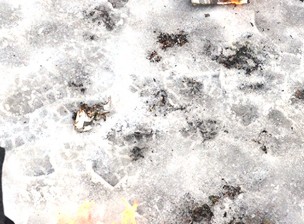
Date: 2017-01-27 10:00
Place: KTH, Kollegiesalen, Brinellvägen 8, Stockholm
Exploring the Aesthetics of Felt Time
By building a felt time repertoire, designers can sensitively feed a sense of time into their design work. And this in turn can help them produce an interaction gestalt that is richer, more sensual. My research on this suggests that this is not entirely easy, however. One has to develop a ‘feel’ for time. My research exploration began when I worked on designing a biofeedback data system, Affective Health, struggling with the tension and division between clocktime and the users’ unceasingly changing, ‘felt’ experiences. By turning to artistic practice, of music and culinary arts, I hoped to find keys to this question. Through connecting interaction-design research to these practices, I could start unfolding possibilities of temporal aesthetics in interaction design. I point to a space where designers can expand their understanding of felt time and playfully explore the sense of time that interactive systems and physical materials can deliver. Through the aspects below I point to the importance of being sensitive to felt forms and expressions of time to approach the temporal gestalt in interaction.
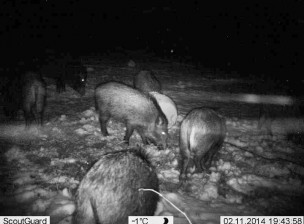
Date: 2016-12-16 13:00
Place: Mobile Life Centre
Opponents: Vanessa Barker, Sociologiska Institutionen vid Stockholms Universitet. Jakob Tholander, Institutionen för Data- och Systemvetenskap vid Stockholms Universitet.
Supervisor: Oskar Juhlin, Institutionen för Data- och Systemvetenskap vid Stockholms Universitet. Árni Sverrisson, Sociologiska Institutionen vid Stockholms Universitet.
Title: Developing Perspectives on the “I”: Theorizing User-Computer Interactions Beyond the Human
Abstract: Animals are increasingly involved in digital technology and interaction design. The growing inclusion of other species besides the human in sociotechnical contexts and user-computer research opens up new possibilities and forms of interactions. It contests traditional notions of what a user is and can be, and how digital technologies, as well as other species, are being used. Consequently, it also challenges previous theoretical foundations for understanding user-computer interactions. Employing and modifying conventional approaches from the field of Human-Computer Interaction (HCI) has become the standard procedure for the emergence of Animal-Computer Interaction (ACI) in which animals are treated as the “new humans” to design for and with. A systematical investigation of the applicability and malleability of these design-oriented approaches is a logic and mandatory thing to ensue, even if its, as this thesis explores, not the only way to progress. As a complement, ACI needs a bolder and more creative way of proceeding when it comes to building a theoretical framework to account for what these types of interaction really means. By exploring alternative approaches outside HCI, synthesizing perspectives from different disciplines, and grounding the applicability of such perspectives in empirical research in the wild rather than solely focusing on design scenarios presented for animals in a lab setting. There is a need to extend our thinking and conventional ways of doing research and design from traditional HCI approaches. This thesis aims at extending the conventional notions of how “interaction” can be conceptualized, a topic that ineptly have suffered from negligence. Drawing on ethnographic fieldwork this thesis explores complementary theoretical approaches and methods for understanding the emerging dynamics of these new forms of interactions, and also how these insights can excite the imagination and be generative for design.
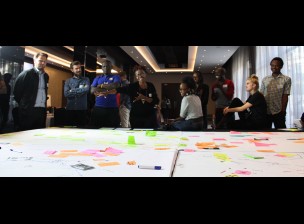
Date: 2016-11-09 09:00
Place: Nairobi, Kenya
On November 9th-11th, Mobile Life was partner of the Sweden@Kenya forum in Nairobi. Oskar Juhlin and Jinyi Wang was part of organising the "Fashion tec" workshop with designer and tech people from Nairobi. Maria Holm, was one of the organisers of the "Imagine my city" studio discussing the public spaces of Nairobi. The forum addressed issues such as how to unify the voice of the creative sector, how to identify and create effective collaborations, and the role of the creative and cultural sector in a complex, digitalised and interlinked world where ideas, values and visions are needed. Sweden@Kenya aims to bring tangible results in terms of intellectual inspiration, new contacts and networks, business opportunities as well as strengthened bilateral cooperation and exchanges between Sweden and Kenya.
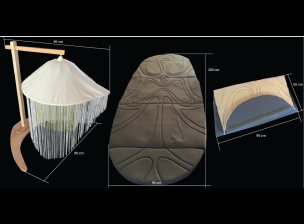
Date: 2016-10-03 08:00
Place: Hemmiljö
Vill du delta i en studie om kroppsmedvetenhet under tre månader?
Är du/ni intresserade av kroppskännedom och av att bli mer medveten om dig själv och din kropp? Kanske tränar du yoga, använder mindfulnessövningar, eller någon liknande aktivitet? Forskningscentret Mobile Life på SICS Swedish ICT tillsammans med KI söker deltagare till en studie på detta tema. Studien startar i oktober 2016 och pågår i tre månader.
Deltagande i studien innebär att alla i ett hushåll 3-5 gånger i veckan gör en 15 min guidad andningsövning med fokus på kroppen. Övningen guidas av ljud, ljus och värme mha en app, en matta, och en lampa som lånas hem under studieperioden. Alla i hushållet kommer att bli intervjuade tillsammans vid fyra tillfällen under studieperioden samt få fylla i enkäter vid två av dessa tillfällen.
Vi söker nu fem hushåll där alla medlemmar ska kunna delta i studien. Lottning kommer att utse fyra hushåll som får hem mattan och lampan, och ett som blir kontrollgrupp och endast genomför intervjuerna. Vi söker fyra olika typer av hushåll:
- Familj; en-två vuxna personer med max 3 barn (alla barn äldre än 11 år och längre än 150 cm)
- Enmanshushåll (över 18 år)
- 3-5 personer (över 18 år) som delar bostad
- Äldre par, 65+
Ingen ersättning utgår för deltagande i studien.
För att delta i studien ska alla i hushållet förstå svenska, ingen vara sjukskriven, och ej heller ha några kända hjärtsjukdomar, stroke, eller någon psykiatrisk diagnos. Ni ska bo i Stockholms/Uppsalaområdet.
Länk till hemsida för studien https://www.sics.se/projects/somaesthetics#node-12210
Vill du delta? Kontakta: Stina Nylander, [email protected]
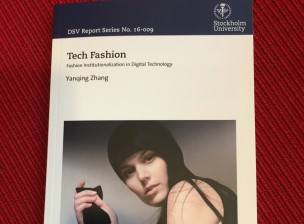
Date: 2016-09-02 13:00
Place: DSV, Nod, Borgarfjordsgatan 12,Kista, room L50
Tech Fashion: Fashion Institutionalization in Digital Technology
Opponent: Jonna Häkkilä
Supervisor: Oskar Juhlin
This thesis explores aesthetization in general and fashion in particular in digital technology design and how we can design digital technology to account for the extended influences of fashion. The thesis applies a combination of methods to explore the new design space at the intersection of fashion and technology. First, it contributes to theoretical understandings of aesthetization and fashion institutionalization that influence digital technology design. We show that there is an unstable aesthetization in mobile design and the increased aesthetization is closely related to the fashion industry. Fashion emerged through shared institutional activities, which are usually in the form of action nets in the design of digital devices. “Tech Fashion” is proposed to interpret such dynamic action nets of institutional arrangements that make digital technology fashionable and desirable. Second, through associative design research, we have designed and developed two prototypes that account for institutionalized fashion values, such as the concept “outfit-centric accessory.” We call for a more extensive collaboration between fashion design and interaction design.
http://dsv.su.se/omdsv/evenemang/disputation-yanqing-zhang-1.286526
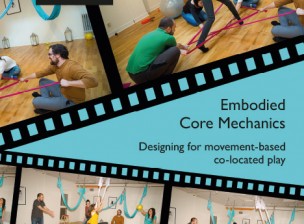
Date: 2016-06-10 13:00
Place: Lecture Hall 2, Ekonomikum, Kyrkogårdsgatan 10 A, Uppsala
Embodied Core Mechanics: Designing for movement-based co-located play
Opponent: Helena Mentis
Supervisors: Annika Waern, Kristina Höök, Barry Brown
Movement-based interactive systems for play came into the spotlight over a decade ago, and were met with enthusiasm by the general public as well as the Human-Computer Interaction research community. Yet a decade of research and practice has not fully addressed the challenge of designing for the moving body and play. This thesis argues that often, the role of the technology to sustain the play activity, and to drive the design process, has been over-emphasized, and has resulted in limited design possibilities. This thesis explores an alternative design approach to address the problem through combining the design of the technology with designing aspects of the social and spatial context where the play activity takes place. The work is grounded in an embodied perspective of experience, action, and design. Methodologically, it belongs to the Research through Design tradition (RtD).
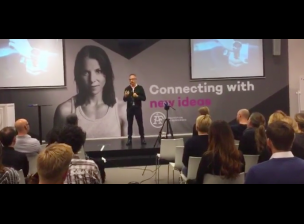
Date: 2016-04-08 13:00
Place: DSV Nod, L30, floor 1, Borgarfjordsgatan 12, Campus Kista
Digital devices are being used in close physical proximity to our bodies, in the same position as our clothes. Professor Oskar Juhlin lectures about the question that arises: how, specifically, should these devices vary in their expression?
There is an ongoing trend of digital devices being used in close physical proximity to our bodies, in the same position as our clothes. It started with the success of mobile phones, continues with the emergent use of smart watches and smart eyewear, and is leading to a future of smart textiles and organic user interfaces. These devices provide public visual surfaces with possibilities for endless variation of visual expression. With the emergence of wearable hardware, we foresee the need to develop fashion-oriented software, services, and applications. Professor Oskar Juhlin will tell us more about the question that arises: how, specifically, should these devices vary in their expression?
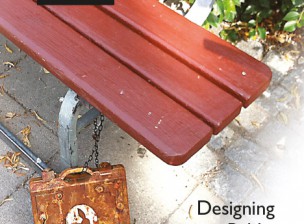
Date: 2016-02-05 13:15
Place: Uppsala University, Hörsal 2, Ekonomikum, Kyrkogårdsgatan 10 A
Title: "Designing Public Play: Playful Engagement, Constructed Activity, and Player Experience"
Opponent: Dr José P. Zagal.
Supervisors: Annika Waern, Barry Brown
Abstract
This thesis sets out to explore why people engage in, and how to design for, play in a public setting. It does this by separating design for play from design of games, describing play as a socially and mentally understood activity, and a playful approach to engaging in that activity. It emphasises that while play is voluntary, design can help shape the players’ mode of engagement.
The thesis uses a qualitative and inductive approach to research, with an understanding of knowledge as being constructed in the individual. The research is grounded in human computer interaction and interaction design, and closely related to game studies and design science.
The research question concerns how design can influence the player activity in order to create a desired player experience in public, by harnessing playful engagement. It’s foundation is a theory of play which describes play as a framed, or hedged-off, activity with a fragile border; where knowledge and feelings can leak both in and out of the activity, and affect the play as well as what is around it. The theory of enjoyment of play is discussed, and the problem of treating this as ‘fun’ is addressed, concluding in a presentation of how playful engagement can be harnessed through design.
http://uu.diva-portal.org/smash/record.jsf?pid=diva2%3A876519&dswid=-7763
Welcome!
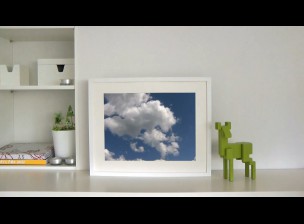
Date: 2016-02-04 13:00
Place: DSV, Lilla hörsalen, NOD-huset, Borgarfjordsgatan 12, Kista
Live Mobile Video Interaction: Inventing and investigating technology, formats and applications
Supervisor: Professor Oskar Juhlin, DSV, Stockholm University, co-supervisor: PhD Goranka Zoric, Mobile Life Center, ABB
Opponent: Professor Artur Lugmayr, Curtin University,Australia
Grading Committee: Professor Mikael Wiberg, Umeå University, Professor emerita Gudrun Dahl, Dept. of Social Anthropology, Stockholm university, Associate professor Konrad Tollmar, Royal Institute of Technology
Abstract
The convergence of inexpensive video-enabled mobile phones, high-speed mobile data networks and ubiquitous sensing devices opens up a new design space called “live mobile video interaction”. It gives rise to a new genre of applications concerning live mobile video production, which can be seen as an instance of the said space. In this work we are particularly interested to explore potential technical challenges and opportunities presented by “live mobile video interaction”.
We started our investigation by studying two existing prototypes from the said genre, the Instant Broadcasting System (IBS) and the Mobile Vision Mixer (MVM). We studied their applicability for amateur users of collaborative mobile video production tools and the problems caused by inherent communication delays in the Internet. We acquired initial user feedback and conducted technical tests on Instant Broadcasting System (IBS) and Mobile Vision Mixer (MVM).
Our results indicate that lack of synchronisation among video streams causes problems for directors in such systems that were not present in professional systems. We also identified two distinct video production modes depending on visual access of the director to the event that is being filmed. Based on our study we proposed technical design suggestions and indications on how to solve the synchronisation problems in respective mixing modes. We also proposed an algorithm for frame-rate exclusive synchronisation management of live streams in a collaborative mobile production environment. We further probed the design space using the research through design method, which resulted in a fully functional prototype system called “Livenature” that would incite an emotional connection that exists between people and the places they cherish. Further investigation of Livenature allowed us to produce detailed studies about experiential and technical aspects of the system, thus revealing phenomenological and technical dimensions of the design space.
Welcome!
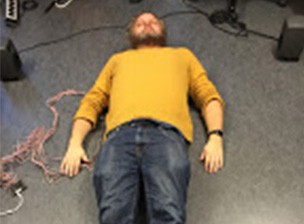
Date: 2016-01-22 21:30
Place: Södra teatern
The Soma Project has been invited to exhibit the Pressure Carpet at radio P2's event Art's Birthday Party. The Pressure Carpet has been further developed and is now featured with ambient sound feedback on bodily movements.
P2 Art's Birthday Party is arranged by Sveriges Radio P2 in cooperation with Elektronmusikstudion and Södra Teatern.
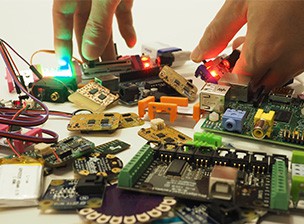
Date: 2015-12-18 13:00
Place: Kollegiesalen, KTH, Brinellvägen 8, Stockholm
Title: "Engineering through Designerly Conversations with the Digital Material"
Opponent: Associate Professor Anna Vallgårda, ITU
Grading Committee: Professor Stephen Brewster, Lilybank Gardens University of Glasgow, Professor Gillian Crampton Smith, FH-Postdam, Assoc. Prof. Alex Jonsson, KTH, Assoc. Prof. Mario Romero, KTH (reserve)
Supervisors: Professor Kristina Höök, Mattias Jacobsson, Jarmo Laaksolahti
Chair: Cristian Bogdan
Abstract
The role of IT devices and technology in our everyday lives is growing. The commercial availability of sensor and wireless communications technologies has led to an increase in the number of systems utilizing these to provide compelling experiences. Designing embedded systems is challenging, as the properties involved are often hard to observe, touch, and experiment with. Being that these technologies can inspire, drive, or limit design processes, methods and tools must be developed to create a shared knowledge for multidisciplinary design teams. This thesis focuses on how engineers can better communicate their knowledge of digital materials to non-expert technology designers and multidisciplinary design teams.
In particular, this thesis focuses on a class of embedded systems that we have named Proxessories. Proxessories consist of sensors, actuators, and wireless communication together forming accessories placed on or around the body that communicate with other devices, acting as accessories to other devices and objects. The goal of this research is to contribute new approaches and tools to help engineers convey their technological knowledge while working within a multidisciplinary design team. To accomplish this, the emerging topic of materiality in interaction design is introduced and used to discuss how an engineering perspective can be altered to cater to processes wherein digital materials are utilized as a design resource to create a better understanding of their experiential properties.
The research method of this work falls broadly under the header Research through Design (RtD). That is, this work claims that through designing a range of Proxessory applications, a set of tools and methods can be extracted to better support the dialogue between engineers and other competencies in a multidisciplinary design team.
This thesis results in providing an engineering design approach that is instantiated and materialized through hardware and software tools. The first tool, Inspirational Bits, is an approach where bits and pieces of technology are revealed to a multidisciplinary design team in a playful manner, exposing them to the interactive, dynamic properties of digital materials. The second tool, the rFlea, is an Arduino-based board, with an inbuilt ultra-low power wireless connection, the size of a coin cell battery. rFlea can connect wirelessly to another rFlea or existing tablets and mobile phones by means of pre-made libraries. The third tool, Insbits Studio is a cloud-based visual programming platform that can connect to the rFlea, adding cloud services abilities and connections to Internet of Things products and services. Together these three tools point to a novel philosophy of how to approach engineering. Instead of solving a given problem, engineers must open the design space and expose the material properties and affordances in such a manner that the team can experience them in the early phases of a design project.
Welcome!
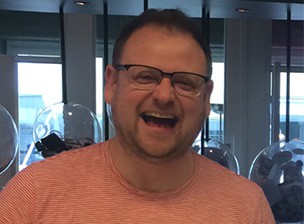
Date: 2015-12-11 11:30
Place: DSV, sal L30, plan 2, Borgarfjordsgatan 12 (Nodhuset), Campus Kista
Barry Brown introduces his and Oskar Juhlin's new book "Enjoying Machines", out this year from MIT Press. Brown and Juhlin argue that pleasure is fundamentally social in nature. We learn how to enjoy ourselves from others, mastering it as a set of skills. Drawing on their own ethnographic studies and on research from economics, psychology, and philosophy, Brown and Juhlin argue that enjoyment is a key concept in understanding the social world. They propose a framework for the study of enjoyment: the empirical program of enjoyment.
http://dsv.su.se/omdsv/evenemang/from-enjoying-machines-to-telling-the-t...
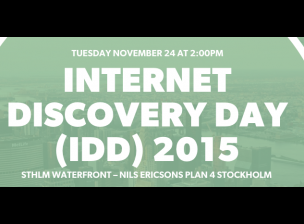
Date: 2015-11-24 14:00
Place: Stockholm Waterfront
Mobile Life will be exhibiting at the Internet Discovery Day. The day is held in conjunction with "Internetdagarna" on the 24th of November at Stockholm Waterfront and starts at 2pm. Come meet with Vincent Lewandovski and discuss the hot topic of Internet of Things and Johanna Mercurio that will bring cool research ideas such as the Soma mat and Breathing light. We will also have the Mobile Life start-up companies, Liveling, Arvid Engström, Biosync technologies, Dina Titkova and Figuracy, Oskar Juhlin.
Register here. The event including mingel with drinks is free of charge
See you at Stockholm Waterfront!
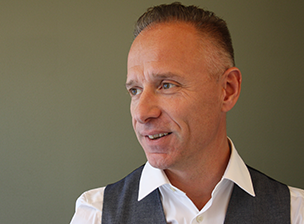
Date: 2015-11-12 15:30
Place: ÅF, Frösundaleden 2
On November 12th, Oskar Juhlin will talk about the challenges the fashion industry faces when becoming more digital. There is an ongoing trend of digital devices being used in close physical proximity to our bodies, in the same position as our clothes and accessories. It started with the success of mobile phones, continues with the emergent use of smart watches and smart eyewear, and is leading to a future of e.g. organic user interfaces. These devices provide public visual surfaces with the possibility for endless variations of expression. Currently, such devices competes with, rather than interact with, the clothes and accessories we are wearing, and were the latter is embedded in fashion culture and aes¬thetic design. The problem is the deficient connection between wearable technology research and fashion design, which lead to missed opportunities and user dissatisfaction.
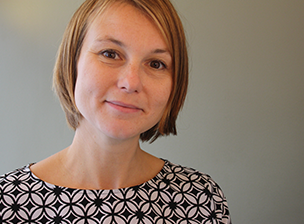
Date: 2015-11-12 13:00
Place: ÅF, Frösundaleden 2
Anna Ståhl will give a talk at World Usability Day on November 12th. Anna's topic for the talk will be about the Mobile Life project called Soma. Somaesthetics is the study and understanding of how to improve our bodily, or somatic, agency. This concept, relatively new to HCI, looks at our bodies as the centre of our experiential existence and looks at design, from the perspective of providing for better bodily experiences, ones which do not harm our bodies, but rather allow for fuller and more pleasurable experiences and interactions. In this project we have, together with IKEA, engaged in the possible bodily experiences we can design for. By designing applications with an explicit focus on aesthetics, somaesthetics, empathy with ourselves and others, we aim to move beyond treating our bodies as mere input-output machines, using impoverished interaction modalities, towards richer, more meaningful interactions based on our human ways of living in the world.

Date: 2015-11-12 10:00
Place: Chalmers conference centre, Chalmers plats 1, Göteborg
The Centre Day is the final event to bring together VINN-Excellence- and Berzelii Centres which join Swedish universities, research institutes and industry in research and innovation. The VINN-Excellence and Berzelii Centres are soon coming to an end after ten years of operation and it is now time to summarise and look on the future.
The day summarises some highlights from centres where world-leading research and innovation at Swedish universities have successfully been combined with commercialisation among a variety of companies. The day is concluded with a discussion on the future of this type of joint research and innovation centres between Swedish universities and industrial partners.
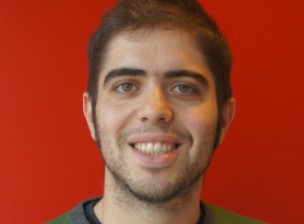
Date: 2015-06-11 17:30
Place: Kollegiasalen
Information and Communication Tech nologies for Development (ICT4D) deals with understanding the relationship between modern technology use and social and economic development. While play may not appear as an immediate concern to the field, a recent body of work has emerged questioning the role of play in ICT4D and the reasons behind its apparent dismissal. Some have even argued that aspects of pleasure and enjoyment get only marginal treatment within academic studies of technology more generally. In ICT4D however, concerns over lack of resources and a sense of urgency in addressing more pressing needs, creates in itself an added set of boundaries which may further restrict both the playful activities themselves, as well as their recognition in academic work. In this work I will revisit the work done in ICT4D with regards to play in order to frame the contributions that lie herein.

Date: 2015-04-20 19:00
Place: STYLE PUB, 153-54 Samseong-dong, Gangnam-gn, Seoul, 135-091, South Korea
The dominant feature of modern technology is not how productive it makes us, or how it has revolutionized the workplace, but how enjoyable it is. We take pleasure in our devices, from smartphones to personal computers to televisions. Whole classes of leisure activities rely on technology. How has technology become such an integral part of enjoyment? In this book, Barry Brown and Oskar Juhlin examine the relationship between pleasure and technology, investigating what pleasure and leisure are, how they have come to depend on the many forms of technology, and how we might design technology to support enjoyment. They do this by studying the experience of enjoyment, documenting such activities as computer gameplay, deer hunting, tourism, and television watching. They describe technologies that support these activities, including prototype systems that they themselves developed.

Date: 2015-03-20 10:00
Place: Lindstedtsvägen 5
Designing for Interactional Empowerment
Anna Ståhl’s thesis further defines how to achieve Interactional Empowerment through design for users. Interactional Empowerment is an interaction design program within the general area of affective interaction, focusing on the users’ ability to reflect, express themselves and engage in profound meaning-making.